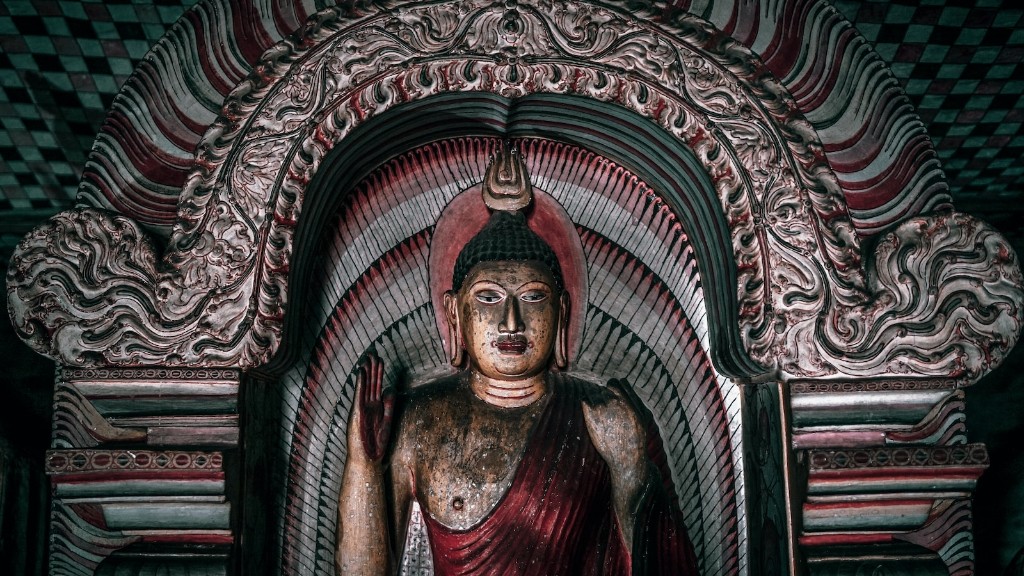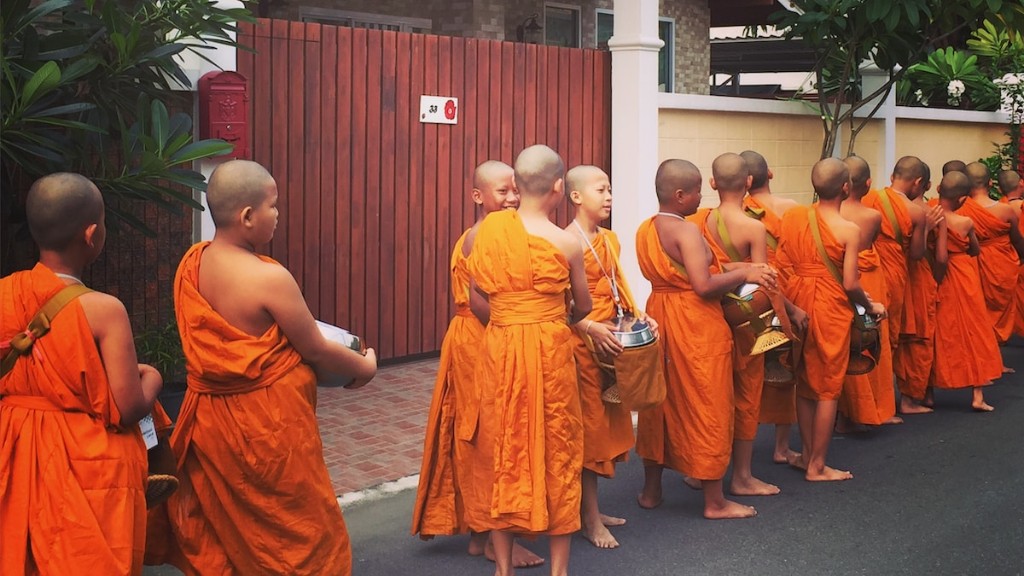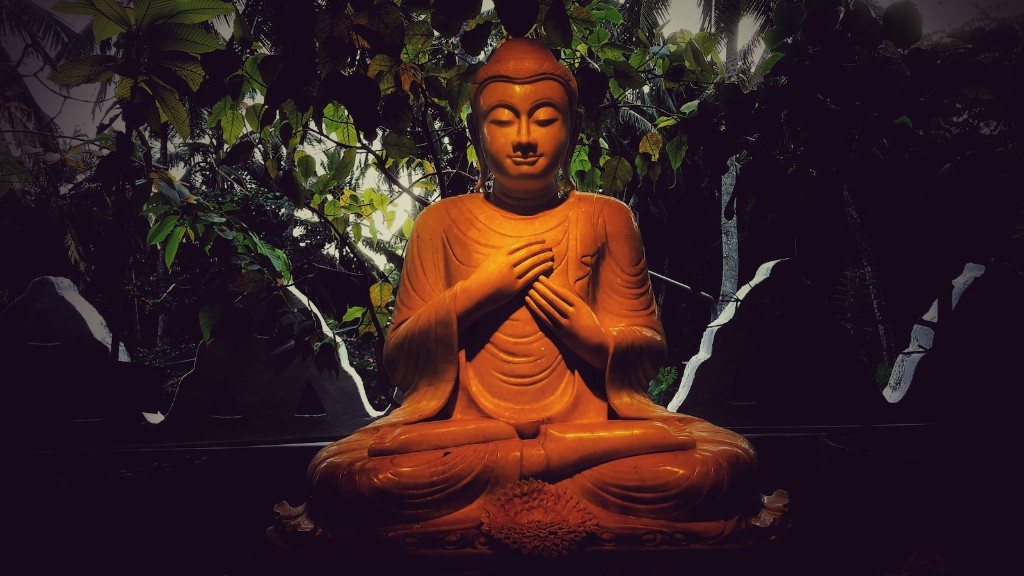Buddhism is a religion that originated in India. It is based on the teachings of Siddhartha Gautama, who is also known as the Buddha. The word Buddha means “awakened one” or “enlightened one.” Buddhism is a nontheistic religion, meaning it does not believe in a supreme being, such as a god or gods. Instead, Buddhists focus on achieving enlightenment, which is a state of inner peace and wisdom. There are many different types of Buddhism, each with its own beliefs, practices, and traditions.
Buddhism is a religion that encompasses a variety of traditions, beliefs and spiritual practices largely based on original teachings attributed to the Buddha and resulting interpreted philosophies. There is no central authority in Buddhism and beliefs or practices vary between different schools, sects and regions.
Precisely what the Buddha taught with regard to the existence or non-existence of a Creator god (or gods) is uncertain and has been the subject of debate among Buddhist scholars and teachers. Early Buddhist texts are generally non-committal on the issue, raising various possibilities but not taking any definitive stand. Later texts offer a diversity of views on the nature of the Buddha’s teachings with some asserting that he was a monotheist who taught the existence of a supreme being, others claiming he was an atheist who denied the existence of a supreme being, while others suggesting he was a pantheist or panentheist who taught that everything is interconnected and interdependent. In recent times, some scholars have suggested that the Buddha may have been agnostic with regard to the existence of a supreme being.
Is Buddhism a polytheist?
Buddhism is a religion that is typically classified as non-theistic, but depending on the type of Buddhism practiced, it may be seen as polytheistic. This is because Buddhism at least acknowledges the existence of multiple gods. The Buddha is a leader figure in Buddhism, but is not meant to be worshipped as a god.
Buddhism is a nontheistic religion, which means that it does not believe in a single god or divine being. Even the Dalai Lama, one of the most well-known and respected Buddhist leaders, has said that Buddhism is a nontheistic religion. You can read about this in his books, which provide a detailed and insightful look into the beliefs and practices of Buddhism.
Is Hinduism and Buddhism polytheistic or monotheistic
Hinduism is a complex and diverse religion that cannot be easily categorized as either monotheistic or polytheistic. While the religion does have a pantheon of divinities, it also emphasizes the universal spirit, or Brahman. This allows Hindus to remain devoted to a particular god while still recognizing the existence of other gods and goddesses.
Buddhism is a religion and philosophy that originated in India in the 6th century BCE. The three main schools of Buddhism are Mahayana, Theravada, and Vajrayana. Mahayana Buddhism is the largest school of Buddhism and is common in China, Taiwan, Japan, and South Korea. It emphasizes the role models of bodhisattvas (beings that have achieved enlightenment but return to teach humans). Theravada Buddhism is the oldest school of Buddhism and is common in Sri Lanka, Cambodia, Laos, and Thailand. It emphasizes the teachings of the historical Buddha. Vajrayana Buddhism is a school of Buddhism that originated in India and is common in Tibet, Nepal, Bhutan, and Mongolia. It emphasizes the use of tantric practices and rituals.
Is Buddhism mono or poly theistic?
Buddhism is neither polytheistic nor monotheistic. It’s a non-theistic religion, meaning that it has no official God or deity. Buddha was and is an important figure in Buddhism, but he was not a god or deity.
The two religions are different in a number of ways, but the most fundamental difference is that Christianity is based on the belief in one God, while Buddhism does not necessarily involve any belief in a supreme being. Christians believe that God created the world and sets forth moral values for humanity, while Buddhists may view the world as being without a beginning or end, and thus not in need of a creator.
Which religions are polytheism?
There are various polytheistic religions practiced today, for example; Hinduism, Shintoism, Thelema, Wicca, Druidism, Taoism, Asatru and Candomble. Each religion has its own unique beliefs and practices regarding the worship of multiple gods and goddesses. In general, polytheistic religions believe that there is more than one god or goddess who is worthy of worship. That said, the specifics of each religion can vary greatly. For example, some polytheistic religions may focus on the worship of a single god or goddess, while others may have a pantheon of deities that are worshipped. Additionally, the reasons for worshiping multiple gods and goddesses can also vary. Some polytheistic religions may believe that multiple gods and goddesses represent different aspects of the divine, while others may believe that worshiping multiple deities is a way to ensure that all bases are covered in terms of providing for human needs. Ultimately, there is no one way to be a polytheistic religion, and each tradition has its own unique beliefs and practices.
Buddhism is a religion that does not believe in a supreme god or deity. instead, Buddhism focuses on achieving enlightenment- a state of inner peace and wisdom. Once a person reaches this spiritual echelon, they are said to have experienced nirvana. The religion’s founder, Buddha, is considered an extraordinary being, but not a god.
Is Buddhism a pantheism
Pantheism is the belief that the universe is either identical with God or an expression of His nature. This idea can be found in many different schools of Buddhism and Hinduism, as well as in the Tao-te-Ching. There have also been pantheistic ideas expressed by Western philosophers such as Heraclitus, Spinoza, Fichte, Schelling, and Hegel.
Buddhism is a religion that does not believe in a unique creator God. Rather, it believes that ultimate reality, Nirvana, is beyond the many long-lived gods that are part of the religion. This makes Buddhism a kind of trans-polytheism.
What religions are not monotheistic?
There are a few key points to make about monotheism. First, it is the belief that there is a single god. Christianity and Islam are both monotheistic religions. Buddhism, on the other hand, is a way of life as propagated by Buddha, though many people regard him as a god. Hinduism is not a monotheistic religion, as it has many gods and goddesses.
Polytheism is the belief in many gods. This belief is found in virtually all religions other than Judaism, Christianity, and Islam, which share a common tradition of monotheism, the belief in one God. Polytheism is often characterized by a pantheon of gods, as in Hinduism, or by a dominant god, with lesser gods subordinate to him, as in Christianity.
Who are the 3 gods of Buddhism
Vajrapāṇi, Mañjuśrī and Avalokiteśvara are the three principal Buddhist deities. Vajrapāṇi is the protector and guide of the Buddha, Mañjuśrī is the Buddha of wisdom, and Avalokiteśvara is the Buddha of compassion. These three deities embody the essential qualities of the Buddha and provide protection, guidance and inspiration to Buddhists on the path to enlightenment.
Buddhism is a religion that teaches people to live in a way that minimizes suffering. The main principles of Buddhism are karma, rebirth, and impermanence. Karma is the belief that a person’s actions in this life determine their experiences in future lives. Rebirth is the belief that a person’s soul is reborn into another body after they die. Impermanence is the belief that everything in life is temporary and will eventually end.
Is A Buddhist an atheist?
Atheism is not a core belief in Buddhism or Jainism, but it is a position that has been taken by some Buddhists and Jainists throughout history. The Buddha himself rejected the idea of a creator god, and Buddhist philosophers have even argued that belief in an eternal god is nothing but a distraction for humans seeking enlightenment. While atheism is not a required belief in either tradition, it is an understandable position for those who wish to follow a path that is entirely focused on this world and on liberation from the cycle of suffering.
misogynistic. However, he argues that Buddhism is more flexible and open to multiplicity and contradiction than other religions, and that this makes it possible to read the tradition in a way that is not misogynistic.
Warp Up
Buddhism is neither polytheism nor monotheism.
Buddhism is a complex religious tradition with a variety of beliefs and practices. While some Buddhists may consider it a polytheistic religion, others may see it as monotheistic. ultimately, it is up to each individual to decide what they believe.



